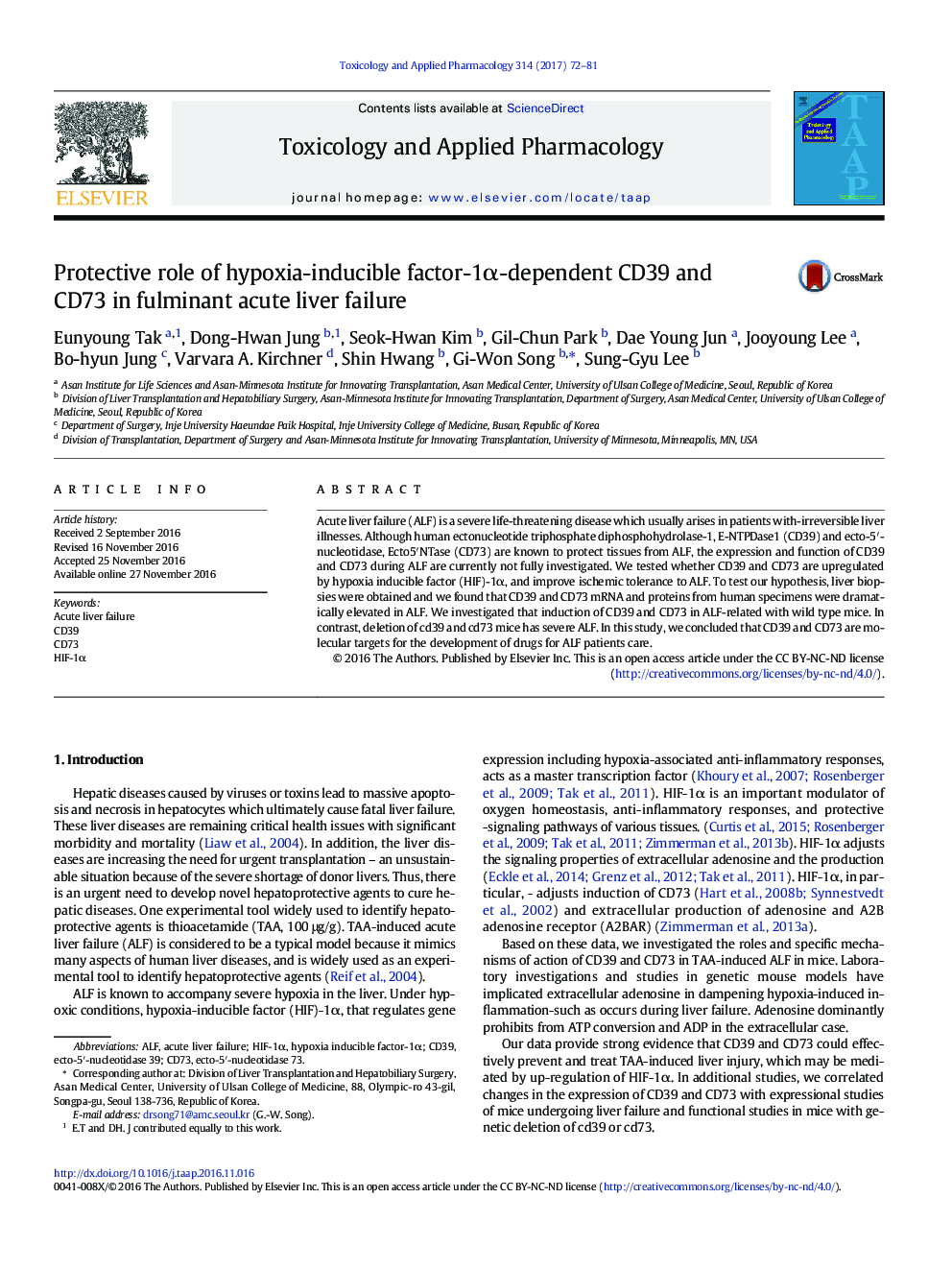| Article ID | Journal | Published Year | Pages | File Type |
|---|---|---|---|---|
| 5558530 | Toxicology and Applied Pharmacology | 2017 | 10 Pages |
â¢HIF-1a is stabilized during acute liver failureâ¢Upregulation of CD39 and CD73 following acute liver failureâ¢CD39 and CD73 are transcriptionally induced by HIF-1aâ¢Deletion of Cd39 and CD73 aggravates murine acute liver failureâ¢DMOG treatment induces HIF-1a stabilization, CD39 and CD73 during acute liver failure in WT mice
Acute liver failure (ALF) is a severe life-threatening disease which usually arises in patients with-irreversible liver illnesses. Although human ectonucleotide triphosphate diphosphohydrolase-1, E-NTPDase1 (CD39) and ecto-5â²-nucleotidase, Ecto5â²NTase (CD73) are known to protect tissues from ALF, the expression and function of CD39 and CD73 during ALF are currently not fully investigated. We tested whether CD39 and CD73 are upregulated by hypoxia inducible factor (HIF)-1α, and improve ischemic tolerance to ALF. To test our hypothesis, liver biopsies were obtained and we found that CD39 and CD73 mRNA and proteins from human specimens were dramatically elevated in ALF. We investigated that induction of CD39 and CD73 in ALF-related with wild type mice. In contrast, deletion of cd39 and cd73 mice has severe ALF. In this study, we concluded that CD39 and CD73 are molecular targets for the development of drugs for ALF patients care.
Graphical abstractDownload high-res image (351KB)Download full-size image
